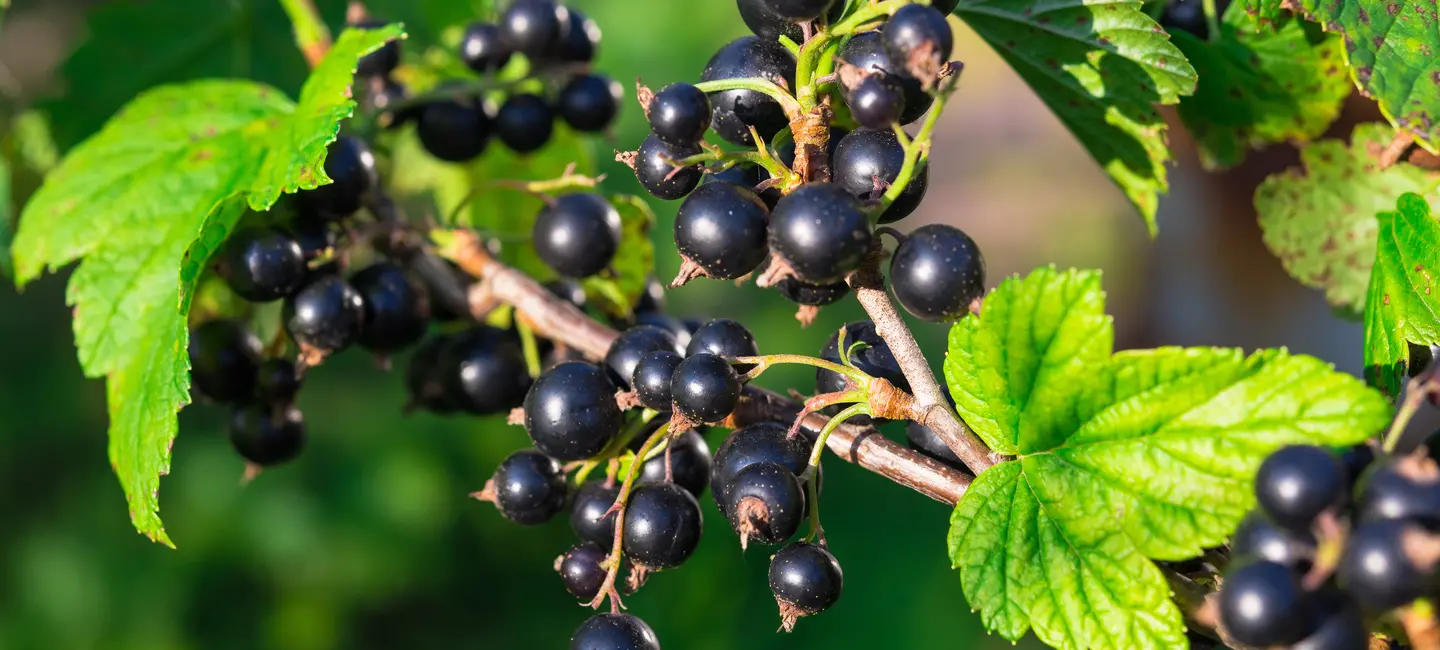
Black currant (Ribes nigrum) is a shrub that grows to about 1-2 meters tall. It makes edible, purple-black berries that taste sweet and contain a seed.
Black currant seed oil contains a chemical called gamma-linolenic acid (GLA). GLA might improve immune function and help decrease swelling. Black currant berries contain chemicals called anthocyanins, which have antioxidant effects. There is interest in these chemicals to prevent skin aging and wrinkles.
People use black currant for eczema, gout, high cholesterol, high blood pressure, muscle fatigue, wound healing, and many other conditions, but there is no good scientific evidence to support these uses.
Don't confuse black currant with gamma-linolenic acid (GLA), omega-6 fatty acids, borage, evening primrose, or flaxseed oil. These are not the same.
Is It Effective?
There is interest in using black currant for a number of purposes, but there isn't enough reliable information to say whether it might be helpful.
Is it Safe?
When taken by mouth Black currant berries, leaves, and flowers are commonly consumed as foods. Black currant juice, extract, and seed oil are likely safe when used appropriately as medicine.
When applied to the skin: There isn't enough reliable information to know if any part of black currant is safe or what the side effects might be.
Special Precautions & Warnings:
Pregnancy and breast-feeding: There isn't enough reliable information to know if black currant is safe to use when pregnant or breast-feeding. Stay on the safe side and avoid use.
Bleeding disorders: Black currant seed oil might slow blood clotting. This might increase the risk of bruising and bleeding in people with bleeding disorders.
Surgery: Black currant seed oil might slow blood clotting. This might increase the risk of bleeding during and after surgery. Stop taking black currant seed oil at least 2 weeks before a scheduled surgery.
Medications that slow blood clotting (Anticoagulant / Antiplatelet drugs)
Interaction Rating=Moderate Be cautious with this combination.
Black currant seed oil might slow blood clotting. Taking black currant seed oil along with medications that also slow blood clotting might increase the risk of bruising and bleeding.
Phenothiazines
Interaction Rating=Moderate Be cautious with this combination.
Taking black currant seed oil with phenothiazines might increase the chance of having a seizure in some people.
Herbs and supplements that might slow clotting: Black currant seed oil might slow blood clotting and increase the risk of bleeding. Taking it with other supplements with similar effects might increase the risk of bleeding in some people. Examples of supplements with this effect include garlic, ginger, ginkgo, nattokinase, and Panax ginseng.
There are no known interactions with foods.
Black currant berries, leaves, and flowers are commonly consumed as foods.
As medicine, black currant seed oil has most often been used by adults in doses of 3-10.5 grams by mouth daily for up to 24 weeks. Speak with a healthcare provider to find out what dose might be best for a specific condition.
Black Currant Seed Oil, Cassis, European Black Currant, Groseille Noir, Grosella Negra, Kurokarin, Nabar, Paper, Ribes Nigri Folium (Black Currant Leaf), Ribes Nero, Ribes nigrum.
Information on this website is for informational use only and is not intended to replace professional medical advice, diagnosis, or treatment. While evidence-based, it is not guaranteed to be error-free and is not intended to meet any particular user’s needs or requirements or to cover all possible uses, safety concerns, interactions, outcomes, or adverse effects. Always check with your doctor or other medical professional before making healthcare decisions (including taking any medication) and do not delay or disregard seeking medical advice or treatment based on any information displayed on this website.
© TRC Healthcare 2024. All rights reserved. Use and/or distribution is permitted only pursuant to a valid license or other permission from TRC Healthcare.
